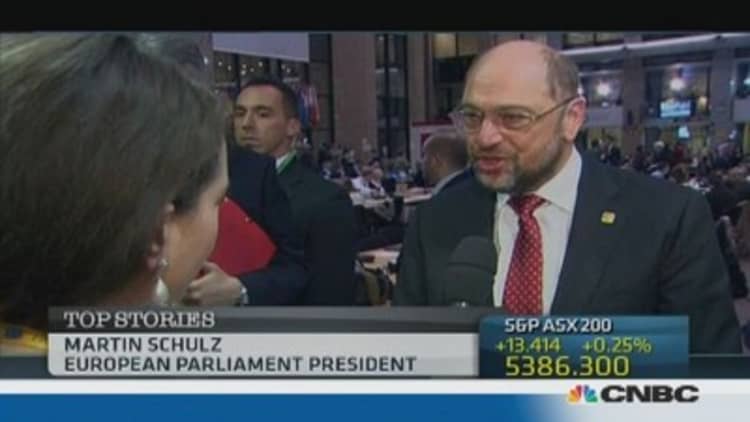European Union citizens who have experienced breaches in their online privacy at the hands of state authorities while in the U.S. could be protected by American laws, under plans announced on Wednesday.
In a move that paves the way for a key data protection deal between the two governments, U.S. Attorney General Eric Holder said the Obama administration is looking to extend the guarantees made under the country's Privacy Act to EU citizens. Currently, Europeans are not protected under this law, which allows U.S. citizens to see and correct records about themselves and challenge the misuse of the information.

If the U.S. goes through with the plans, it could pave the way for a crucial data protection agreement with the EU, known as the "data protection umbrella agreement", to be signed after more than three years of negotiations.
Read MoreUK, US under fire for Angry Birds spy claims
"Legislative action by the U.S. Congress establishing enforceable judicial redress rights for Europeans in the U.S. can open the door to closing the deal on the data protection umbrella agreement," the EU's justice chief Viviane Reding said in a statement.
"This is an important first step towards rebuilding trust in our transatlantic relations."
Relations between the EU and U.S. have been frosty since revelations that American spies were listening in on the phone calls of top European leaders such as Germany's Chancellor Angela Merkel.
Read MoreUS off the hook as EU drops investigation into spying claims
Reports also suggest that U.S. authorities were monitoring personal money transfer information, including bank and credit card transactions, from a Brussels-based system called SWIFT, which collates global financial transactions.
The latest EU drive is an attempt to give citizens greater privacy protection in the U.S, where currently they could be vulnerable to a whole host of data processing hazards. For example, the European Commission warned that if an EU citizen's name is identical to that of a suspect in a transatlantic criminal investigation and their data gets accidently put on a black list, that person may not have protection.
Read More'War-like' cybercrime threatens European growth
"I think European citizens at the moment strongly need to be reassured that if their data is moved to the US or are processed by US based companies that their privacy is still protected the way it is in Europe," Paolo Balboni, director of the European Privacy Association and data protection lawyer.
"There must be a collaboration in reassuring world citizens on privacy and data protection and effectively grant this fundamental right."
At the same time, the EU and U.S. are working on ways to strengthen the "safe harbour" agreement between the two blocs, a framework that allows U.S. companies to transfer personal data from Europe to America.
- By CNBC's Arjun Kharpal


